Ageing Lines: Stories from Caregivers and Elderly Patients
This is a space dedicated to caregivers and elderly patients, created with anonymous collaborations from the WONCA Special Interest Group on Ageing and Health. This section includes inspiring anecdotes for the simple purpose of adding value and quality to older patient’s lives.
January - February 2022
In certain parts of the world specially Pakistan, India and other South Asian countries elderly people are surrounded by family members . This family bond brings magical outcomes in terms of health and longevity. It has been observed that elderly who live alone or in care centers are victims of earlier depression and dementia then the ones living with family.
Not only that they remain healthy ,they also contribute to small family day to day chores until able to do so.
One of my patients is 90 year old lady who lives with her 60 year old son, daughter in law and grandson. The rest of her children also live in the same city and she visits them often. She also has couple of great grand children whom she loves to play with. She talks on phone with her daughters, sews clothes for her great grandchildren and takes part in zoom meetings with her kids abroad. She has never kept herself unengaged in any family matters and her children respect her decisions
Making our elderly patients realise that they have an important place in our life is very important. It brings a smile on their face that is worth everything.
Photo Credit: Tasneem Borhany.
December 2021
Care for the Carer: The Need for Universal Health Coverage
Sometimes in our busy clinics we may overlook the carer of our older patients. The older people themselves often have quite complex needs and the carer is concerned about them, but what about the carer themselves? Often in fact these carers are stressed and anxious, have difficulty coping themselves, and are fearful about how they will manage increasing demands into the future.
As front line health workers in the community we GPs have a wonderful opportunity to reach out to the carers of our older people. We need to ensure that they are also cared for, and we need to give them tools and permission to care for themselves. WE can suggest that it is right for them to have time out and have another family member step in for a few hours or a few days. We need to suggest simple ways in which they can care for themselves in terms of exercise and diet. We need to check their physical and mental health, which is often suffering from the stress of caregiving.
Caring is much easier in those places where access to first line health care is free. Caring is expensive, and carers often reduce or stop work, meaning they have less funds for looking after their own health. WE need universal health coverage not only for our older patients themselves, but also for their carers.
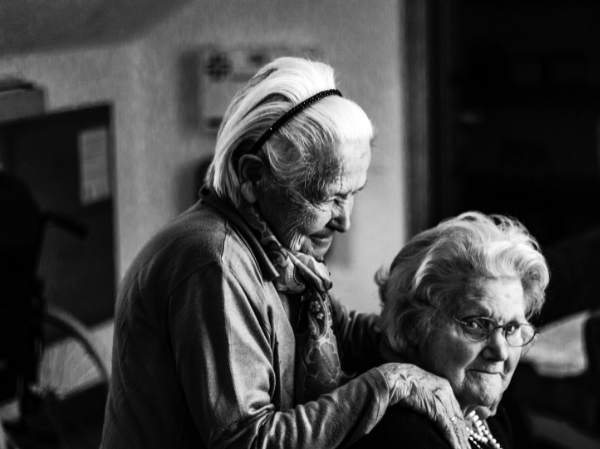 Photo Credit: eberhard grossgasteiger on unsplash
Photo Credit: eberhard grossgasteiger on unsplash
August - September 2021
Aboriginal people in Australia use ochre to make the most wonderful art works. The depth and spiritual significance of this work is hard for non aboriginal people like me to understand, but we can certainly sense it.
Often as they grow older, aboriginal people want to go back “on country” to the geographical place where they were born and/or brought up. This has spiritual significance for them. This is the case for many indigenous people, from many countries, and it is important for us GPs to understand this and if possible facilitate this journey back “home”. IN my country of Australia, this is especially important for them around the time of their dying. Dying “on country” where their native language is spoken also has spiritual significance.

July 2021
(Contributed by the Family Medicine Specialists with Special Interest in Primary Care Geriatrics from Malaysia).
The Primary Care team led by the Family Medicine Specialist in Malaysia has joined the call by the Ministry of Health in ensuring our older persons in the community homes are vaccinated as part of the National COVID-19 Vaccination Program. Older persons especially those residing in community homes are very high-risk population with high mortality rate if infected with COVID-19. In order to achieve a good and quick coverage of vaccination, we are bringing the services nearer to the community.
We have a mobile vaccination team comprises of Family Medicine Specialist, Medical Officers, Medical Assistants, Nurses, other Allied Health Personnel and Volunteers from the Non-Governmental Organization as well, who will go down to the community homes. Older persons (age 60 years old and above) and the community homes’ caretakers will be offered to receive the vaccination.
Talks on the importance of COVID-19 vaccination are also being delivered by the Family Medicine Specialist. Once older persons at the community homes have consented, they will be assessed using the Clinical Frailty Score. Subsequently, they will be given the COVID-19 vaccine and being observed after the vaccination for any adverse events. The date for the next vaccination is well arranged. The team is very committed and has been working dedicatedly. It is indeed heart-warming to see our older persons safe and well protected.
*All the photos shared have been consented
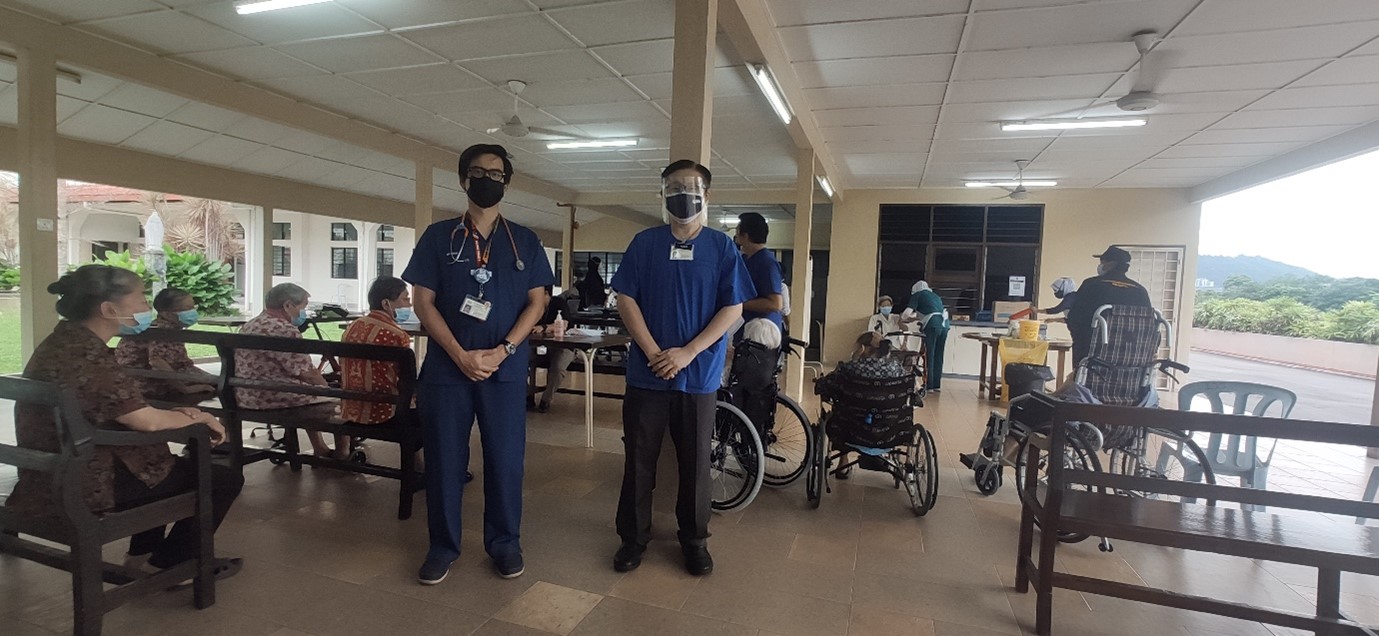 The mobile vaccination team (lead by the Family Medicine Specialist) with the older persons being observed post vaccination in one of the community homes.
The mobile vaccination team (lead by the Family Medicine Specialist) with the older persons being observed post vaccination in one of the community homes.
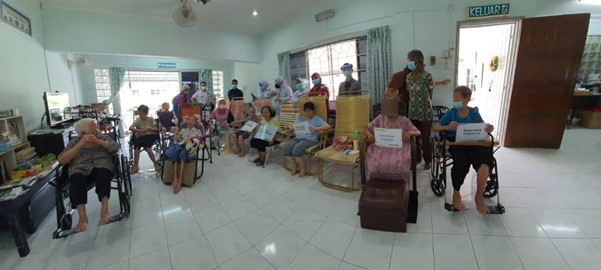 The happy older persons with the mobile vaccination team proudly holding the ‘I have been vaccinated’ card in one of the community homes.
The happy older persons with the mobile vaccination team proudly holding the ‘I have been vaccinated’ card in one of the community homes.
June 2021
Leveraging technology to deliver care to seniors during the Covid19 pandemic
Contributed by SingHealth Polyclinics, Singapore
The Covid19 pandemic has resulted in the widespread adoption of telemedicine. In Singapore, Family Physicians in SingHealth Polyclinics similarly adopted telehealth to complement patient care through the use of video consultation. Since August 2020, video consultation has replaced some physical visits for the elderly patients of two SingHealth Polyclinics, enabling them to have continuity of quality care in the safety of their own homes, reducing their exposure to the coronavirus. After the video consultation, medication for their chronic conditions would be delivered to their homes. Video consultations also provide the advantages of convenience, reduced travelling and waiting times.
However, many seniors are not IT-savvy and do not have access to the necessary Internet-enabled devices. To overcome these barriers, our partners at senior activity centres located near the homes of these patients, as well as community nurses, were roped in to facilitate the video consultations at the centres or in the patients' homes. Volunteers were also deployed to deliver the necessary equipment for video consultation, such as iPads and blood pressure monitors, to the senior’s homes.
These volunteers also took the opportunity to train the seniors and their caregivers in the use of technology so they can participate in video consultations on their own.
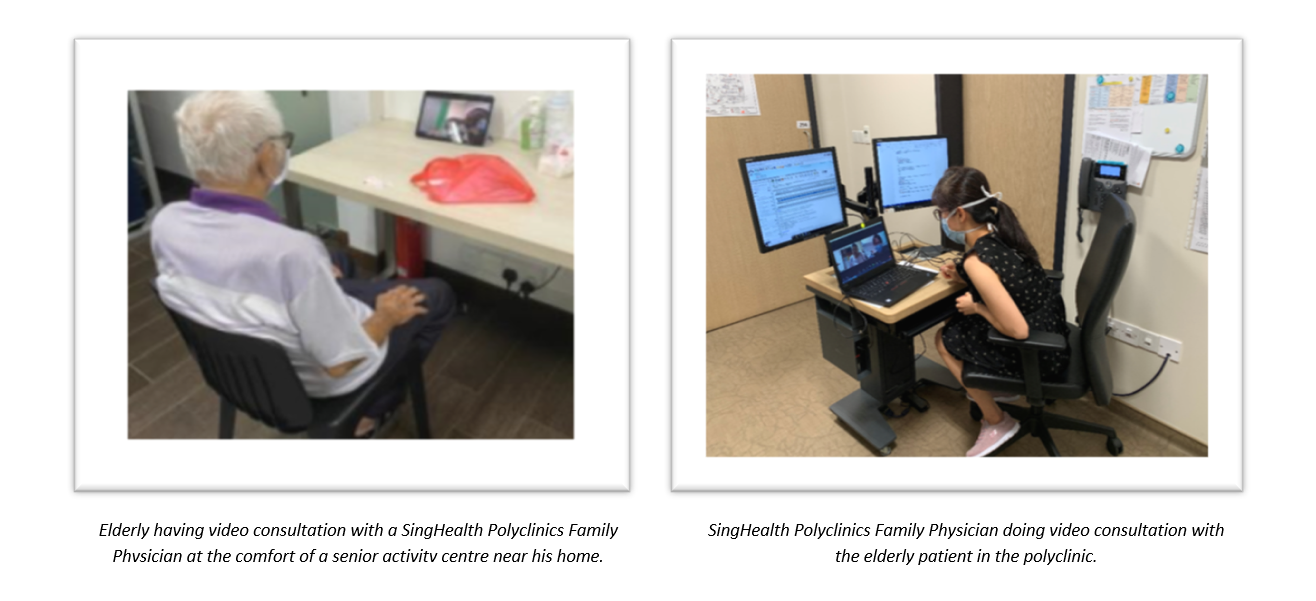
May 2021
The Golden Angels Platform: Using technology for social support and well- being of older adults
The uncertainty and fear of COVID-19 has had significant psychosocial impact on human life. Anxiety, insomnia, stress, depression, loss of interest, worrying about self and family are some of the major emotional responses world-wide and among them, the elderly are the most vulnerable. The elders who were independent prior to COVID-19 became dependent on others for their day-to-day needs. The required social distancing created further mental health issues such as stress, anxiety, feeling of isolation, frustration and depression, sometimes resulting in erratic behavior.
To address these issues, a social welfare entity in Pakistan (the Aga Khan Social Welfare Board) launched an initiative titled the Golden Angels to address the issues of social isolation and concerns about physical health and mental wellbeing.
To this end, the team leveraged available technologies (e.g., Goto meetings, Zoom) to connect older adults from around the country. Starting April 2020, two-hour LIVE sessions were conducted on various topics from health & active living, book reviews, fun activities (Live musical performance and competitions.
Sessions started with five minutes of deep breathing and laughter therapy, followed by a moderated session with Q& A time. Family members, volunteers and caregivers, helped seniors use of mobile phones and various apps. The health sessions included stress management, home exercises and allowed participants to not only interact with experts but also socialize with each other. As the sessions progressed, a clear sense of camaraderie developed among the participants, some of whom attended sessions with family members, especially their grandchildren. Soon, the reach of the Golden Angel program grew to include community members residing in other regions like North America, Middle East, and Australia/New Zealand, who attending sessions despite the time difference.
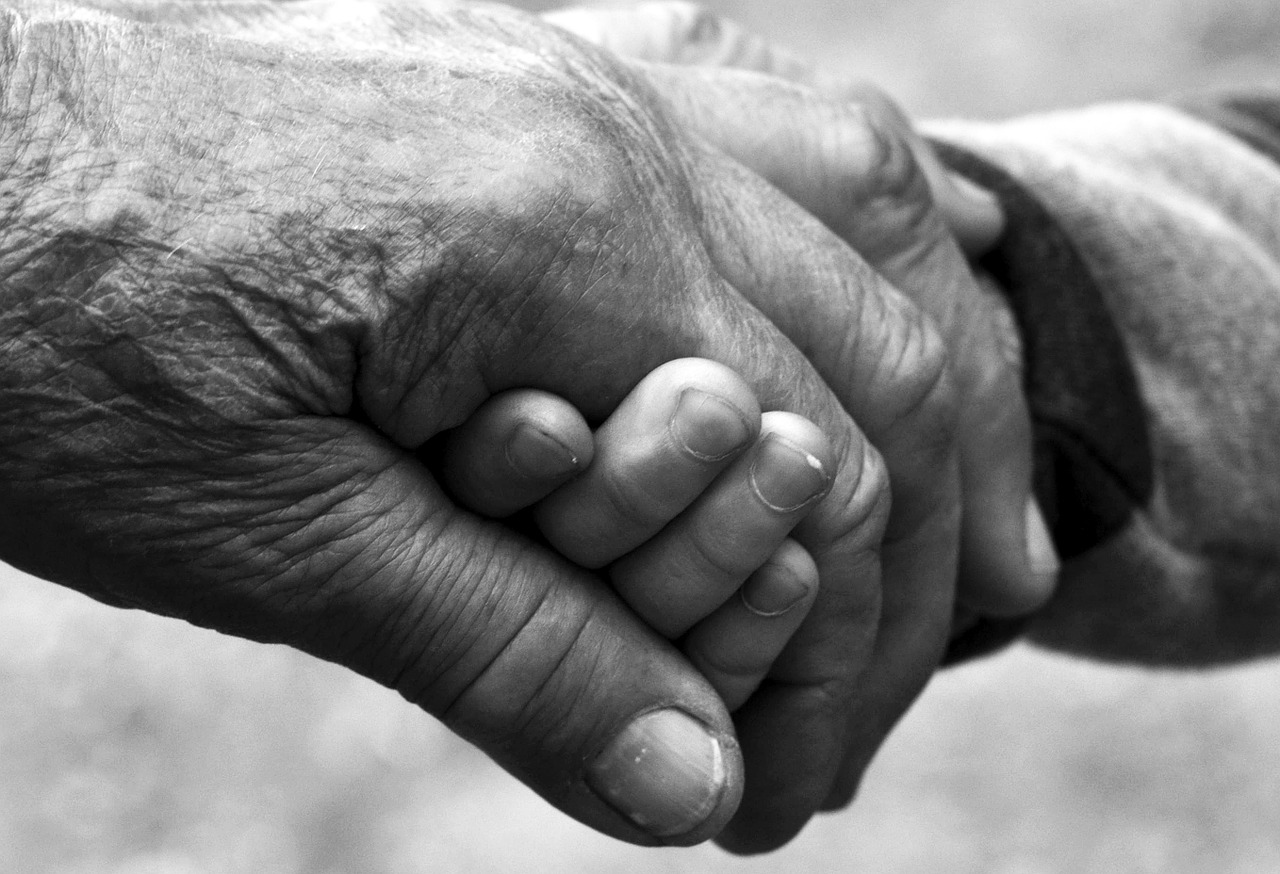
April 2021
"Many family physicians in Singapore work in community hospitals which provide convalescence and rehabilitation care to seniors who are in their post acute phase of illness. My team and I work closely with link workers (called well being co-ordinators in Singapore) who provide social prescribing to improve the well-being of our patients.
When the Covid-19 pandemic hit our shores, the social isolation of our patients were severely aggravated. Mobile technology and social media became an essential means of maintaining social connections. Entry to shops and supermarkets require the use of contact tracing apps that run on QR codes and mobile phones. Most of our patients are unfamiliar with the use of apps on mobile phones. Our link workers decided to do something about it and introduced e-social prescribing. Using the principles of elder-friendly pedagogy, we designed and developed simple lessons that teach smartphone skills such as Connecting to Wi-Fi, QR Code Scanning and use of WhatsApp for staying in touch with friends and family. Much to everyone's surprise, many of our elderly patients responded enthusiastically. The greatest reward for our team was to see the gleam of pride and confidence in the eyes of our patients when they whipped out their smartphones and started calling and messaging their friends and family. They are an inspiration and reminded us that one is never too old to learn.”
.png)
March 2021
"I have a 97 year old patient who tells me that one of the joys of his life is to watch the sunset light up trees outside his bedroom window.
We often underestimate how much pleasure nature can bring our older patients. Perhaps we should encourage them or their family members to get outside, or place them so they can look through the window, or if that is not possible, to have a pot plant or some flowers nearby to give them some pleasure."